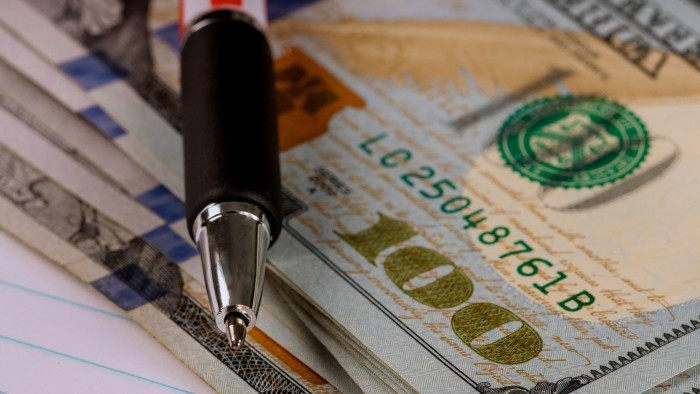Unlock the Editor’s Digest for free
Roula Khalaf, Editor of the FT, selects her favourite stories in this weekly newsletter.
Debates over the merits of ebit versus ebitda would be at home in a Reddit thread or a business school seminar. But the gap between these two measures of a company’s earnings has lately become a significant matter in US tax policy too.
Back in 2017, during his first term as president, Donald Trump signed a reform law that limited the amount of interest payment that could be deducted from a company’s profit before calculating its tax bill. It was initially set at 30 per cent of a company’s earnings before interest, taxes, depreciation and amortisation, often thought of as a close proxy for operating cash flow.
The law said that by 2022, the reference figure would switch from ebitda to earnings before interest and tax, or ebit. This smaller figure deducts depreciation and amortisation expenses, which are not real cash costs but represent the depletion in value of long-term assets.
With interest rates still elevated, it is no surprise that private equity and manufacturing lobbies would like to return the law to the ebitda standard, according to Bloomberg News. The more interest they can offset against tax, the better, as far as they are concerned. Congress would have to change the original law to make it so.

Capping the tax deductibility of interest using either measure might sound arbitrary. The logic is that it partly offsets a distortion in the way companies finance themselves. Tax is calculated after interest has been paid, but before dividends, which in effect means borrowing is subsidised at the company level, whereas equity is not. The Trump limitation brings more parity between the two.
For many companies, the choice of ebit versus ebitda matters quite a bit. Take Charter Communications, the debt-laden, capital-intensive US telecoms group. Last year its interest expense was $5bn, and its ebitda, using statutory accounting standards, was $21bn, in round numbers. But ebit was just $13bn, 30 per cent of which is not enough to fully offset its interest payments against tax, should that alternative ceiling prevail.
There is a bigger debate to be had about whether debt should be tax-advantaged over equity at all. That is for a future administration, perhaps. For now, which the right measurement is depends on the desired outcome. If the goal is to raise maximum tax revenue, or to discourage companies from taking on excessive debt loads, using ebit makes most sense.
If, however, the aim is to ensure companies keep growing and investing — and the Trump administration has certainly given that impression — then preserving the appeal of relatively cheap debt is the priority. Ebitda may therefore be the winner for now. Of course, that might produce other outcomes that please the White House too, such as more profit channelled into dividends and buybacks — and the gratitude of private equity barons.
sujeet.indap@ft.com


